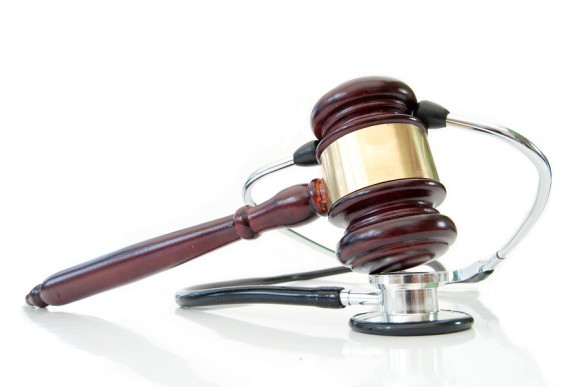A plaintiff is not required to present an affidavit of merit when bringing a vicarious liability claim against a licensed entity for the alleged negligence of an unlicensed employee, the New Jersey Supreme Court has ruled.
According to the court, an affidavit is still needed in claims of negligence brought directly against the employer but not in vicarious liability claims involving an unlicensed employee.
The state’s affidavit of merit (AOM) statute requires plaintiffs in professional negligence actions to provide an affidavit from a licensed professional attesting to the merit of the plaintiffs’ claims. The statute explicitly limits the term “licensed person” to certain individuals and entities that include healthcare facilities and states that failure to submit the required affidavit “shall be deemed a failure to state a cause of action” and may result in dismissal of an otherwise meritorious claim.
This case involved a claim by a radiological examination patient against Lourdes Medical Center, which maintained that because it is a licensed entity, the plaintiff needed an AOM. However, the plaintiff argued that because he was suing the facility solely on a theory of vicarious liability for the conduct of an unlicensed employee, an AOM was unnecessary.
The state’s high court agreed with the plaintiff, noting that although the defendant Lourdes Medical Center is a “licensed person” under the statute, the plaintiff was not claiming that the medical center was professionally negligent, but rather that it was vicariously liable for the negligent acts of its unlicensed employee
The high court had not previously addressed this precise legal question, however it noted that the appellate division has found that vicarious liability claims are tethered to the AOM requirements as to the alleged employee, not the employer.
In February 2018, following surgery on his left shoulder, plaintiff Troy Haviland went to Lourdes Medical Center for a radiological examination. Havilland alleges that during the examination, an unidentified radiology technician asked him to “hold weights contrary to the [ordering physician’s] instructions.” While holding the weights, he sustained an injury to his newly repaired left shoulder, requiring a surgical procedure two months later.
According to the statute, the AOM requirement applies only where (1) a plaintiff’s claim is for personal injuries, wrongful death, or property damages, (2) the personal injuries, wrongful death, or property damages result from an alleged act of malpractice or negligence, and (3) the alleged act of malpractice or negligence is carried out by a licensed person in the course of practicing the person’s profession.
In this case, both the first and second requirements of the statute apply to Havilland’s claim: he alleges that defendant’s employee caused him serious personal injuries by “deviat[ing] from accepted standards of medical care.” However, the court noted, the vicarious liability claim against defendant does not satisfy the AOM statute’s third element because the alleged act of “malpractice or negligence” was not committed by a “licensed person.”
The court stressed that, if the plaintiff had raised any direct claims against the hospital for negligent hiring, training, or supervision of the non-licensed employee, those claims would have been properly dismissed for failure to provide a timely AOM. But plaintiff’s purely vicarious claim may go forward.
The court further noted that, although plaintiff may pursue his claim without submission of an AOM from a licensed expert, the holding in this case “in no way relieves him of the burden of demonstrating the technician’s professional negligence at trial.”
Topics Claims Liability New Jersey
Was this article valuable?
Here are more articles you may enjoy.



 Florida Insurance Costs 14.5% Lower Than Without Reforms, Report Finds
Florida Insurance Costs 14.5% Lower Than Without Reforms, Report Finds  Experian Launches Insurance Marketplace App on ChatGPT
Experian Launches Insurance Marketplace App on ChatGPT  Trump Demands $1 Billion From Harvard as Prolonged Standoff Appears to Deepen
Trump Demands $1 Billion From Harvard as Prolonged Standoff Appears to Deepen  Nine-Month 2025 Results Show P/C Underwriting Gain Skyrocketed
Nine-Month 2025 Results Show P/C Underwriting Gain Skyrocketed 

